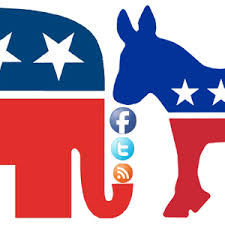Social Media Helps Fuel Political Debate
By Nyasha Jernigan In Social Media, Social Media News Brief, Social Networking, Web 2.0
Some might feel like the politician with the most followers on Twitter or friends on Facebook, is the one most likely to secure more votes, but it isn’t that simple. Since people follow not only people that they actually agree with, but also accounts that are entertaining, it is likely that many followers and friends on Facebook and Twitter are actually looking for statements or possible slip ups that they can then share. In many cases, these items are shared along with sarcastic commentary to show the opinion of the person sharing the post. This means that in many cases the number of followers does not help anyone predict how many votes a candidate might obtain.
In the past, social media has been shown to give a positive boost to campaigns for different individuals. Many people would agree that President Obama was able to secure much of the younger vote at least partially because of his social media campaigns prior to the 2008 and 2012 elections. However, it isn’t about getting followers, but instead actually expressing opinions and interacting with voters. People are more likely to be able to communicate with politicians on a personal level over these platforms. Supporters of the candidates can also push information about the views of the candidate that they like the most, giving candidates an extra boost. For example, the supporter created hashtag for Bernie Sanders, #FeelTheBern, became a big deal on Twitter. This hashtag spreading information about the candidate, while requiring little effort by the politician himself.
While campaigning on social media is no doubt important, there have been many slips and failures throughout the time that politicians have been using social media as a campaigning tool. When Jeb Bush tried to start the slogan “Jeb Can Fix It”, Twitter users attacked the slogan, relating it to suspicions of his involvement with the voting scandal in 2000. Social media may be helpful to some candidates, but when something goes wrong with a campaign, social media makes it so that more people are more likely to hear about it. Campaigning in the age of social media has risks and benefits that were previously unheard of.


No Comment